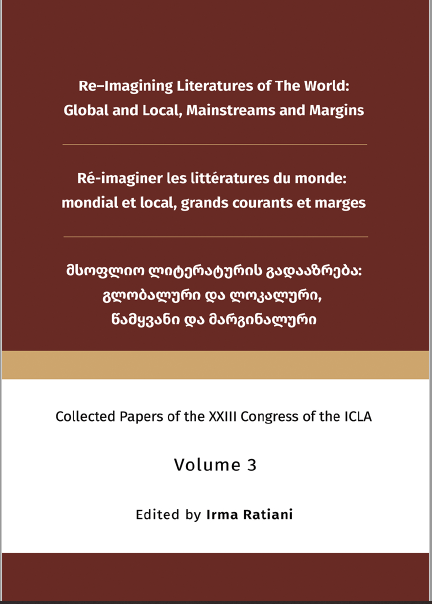Mytho-Folklore Paradigms in Georgian Medieval and Modern Literature According to the Prose Romance “Amiran-Darejaniani” by Mose Khoneli (XII c.) and the Novel “The Cry of the Goddess” by Grigol Robakidze (XX c.)
Main Article Content
Abstract
The aim of presented research is to investigate how the undying mytho-folklore images of demigod Amirani and his mother, goddess of hunt, Dali have been influencing Georgian secular literature from its dawn up to the modern time.
“Amiran-Darejaniani” by Mose Khoneli, precursor of Shota Rustaveli, was written in the epoch of the early feudalism , when the political– economical system ascended and, like Europe the Chivalry institution was established. The aim of the author was description and praise of the knighthood: their way of life, educational – moral system, concept of chivalrous conduct. Idealizing the hero knight, his noble deeds, the author describes his extraordinary challenges before claiming his honor. The romance stands between myth, fairy tale and realistic story. In contrast with Shota Rustaveli’s romantic poem “The Knight in the Panther’s Skin”, “Amiran– Darejaniai” is free of romantic background, of any religious idea or national pathos. Mose Khoneli’s authorship is based on the information recorded in the Pseudo-Rustavelian strophe of the epilogue of “The Knight in the Panther’s Skin” by Shota Rustaveli. The modern writer Grigol Robakidze faced different demands of his epoch: re-examination of every aspect of existence, first of all the intrinsic worth of the individual. The love story of the noble woman Ivlite representing the mortal splitting image of the Goddess Dali (connected to love and hatred, capable of both good and evil) and young hunter Tanbi, depicts their struggle for personal freedom. G. Robakidze, a famous mythmaker, relying on literary devices – symbolic and imaginary, created a psychological novel with a strong and mighty woman. In both literary works we have mythorealistic literary creations with different aims and manner of writing in answer to the time demand.
